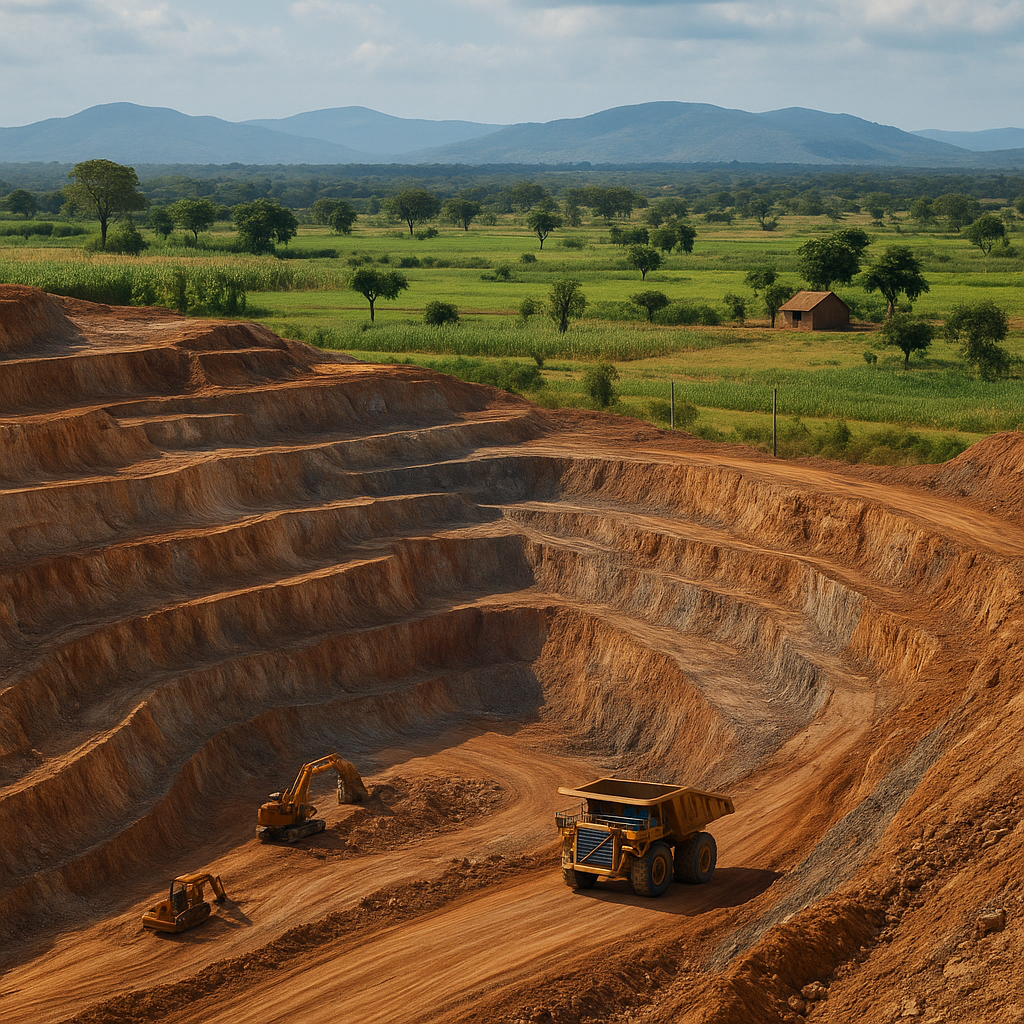Africa’s Railway Revival Fuels Mining Boom and Trade Integration
With African Mining Week (AMW) scheduled for October 1–3, 2025, in Cape Town, attention is turning to the continent’s rapidly evolving logistics landscape.

- Country:
- South Africa
Africa’s mining sector is experiencing a new era of expansion—propelled by strategic investments in railway infrastructure designed to unlock the continent’s mineral wealth and enhance its integration into global trade routes. A wave of large-scale rail projects across the continent is transforming landlocked mining zones into thriving economic hubs, positioning Africa as a pivotal player in the global energy transition and raw materials supply chain.
With African Mining Week (AMW) scheduled for October 1–3, 2025, in Cape Town, attention is turning to the continent’s rapidly evolving logistics landscape. AMW 2025 will spotlight high-impact railway projects, investment-ready mining corridors, and the growing synergy between infrastructure and mineral development across Africa.
€250 Million Boost for Lobito Corridor
At the forefront of this movement is the Lobito Corridor, a mineral logistics route linking Angola, Zambia, and the Democratic Republic of Congo (DRC). In June 2025, the Africa Finance Corporation (AFC) secured a €250 million, 10-year loan from Italian development finance institution Cassa Depositi e Prestiti (CDP) to advance the corridor's development. The funding will be used to procure goods and services from Italian companies for rail development and associated renewable energy projects.
Stretching from the port city of Lobito in Angola into the copper and cobalt belts of Zambia and DRC, the corridor is set to become a vital artery for the export of critical minerals, particularly those vital to the green energy transition.
Simandou Rail Tunnel Signals Progress in Guinea
In West Africa, Guinea-Conakry achieved a major milestone with the completion of a 903-meter tunnel on the 650-kilometre Simandou Railway. The line, set to become operational by early 2026, will transport up to 120 million tons of high-grade iron ore annually from the Simandou deposit, one of the world’s richest iron ore reserves with an estimated 2 billion tons.
In February, U.S. rail tech company Wabtec secured a $248 million contract to supply locomotives for the project. At AMW 2025, the “From Mines to Markets” panel will explore how megaprojects like Simandou are reshaping Africa’s mineral value chains and increasing its competitiveness on the global stage.
Mauritania Expands Iron Ore Rail Network
Mauritania, a key player in iron ore exports, is expanding its rail infrastructure to boost export capacity. The country secured a €113 million loan from the European Investment Bank (EIB) in June to support the Zouérat–Nouadhibou railway expansion.
This railway, crucial to transporting iron ore from inland mines to the Atlantic coast, is part of a €461 million public-private investment led by Mauritania’s national mining company SNIM, EIB, and private sector partners. The goal: optimize Mauritania’s ability to meet growing global demand for iron ore, a key component in infrastructure and green technology.
Cameroon’s Bauxite Logistics Strengthened by Private Investment
In Central Africa, Cameroon is making strides in bauxite logistics. Australian mining company Canyon Resources acquired a 9.1% stake in Camrail, Cameroon’s national rail operator. The acquisition—purchased from TotalEnergies and Société d’Exploitation des Bois du Cameroun—aims to enhance rail connectivity between the Minim Martap Bauxite Mine and port infrastructure.
With the potential to export up to 6.4 million tons of bauxite annually, the project will drive industrial growth and investment in one of Africa’s most promising mineral frontiers. AMW 2025 will present similar opportunities tied to critical minerals like bauxite that are crucial for the global clean energy supply chain.
East Africa and Nigeria Strengthen China-Africa Rail Ties
China continues to play a pivotal role in Africa’s railway development. In East Africa, China Railway Engineering Group signed a $2.15 billion agreement in February with Tanzania and Burundi to build a 282-km cross-border railway, expected to transport up to 3 million tons of minerals annually.
Meanwhile, in Nigeria, the China Development Bank approved a $254.76 million grant to finance the Kano-Kaduna rail line, a vital component connecting the Lagos-Ibadan and Kano-Maradi corridors. This project will enhance the flow of minerals and energy resources across West Africa, making Nigeria a central player in the region’s infrastructure renaissance.
At AMW 2025, the China-Africa Cooperation on Minerals Roundtable will bring together public and private leaders to strengthen bilateral trade, while Nigeria's investment spotlight will highlight projects like the Kano-Kaduna rail as key to the country’s mining and logistics growth.
AMW 2025: A Platform for Investment and Innovation
African Mining Week 2025 is expected to serve as a catalyst for investment, dialogue, and innovation. With sessions focused on strategic transport corridors, public-private partnerships, and the digital transformation of mining logistics, the event will provide investors with insights into Africa’s most promising infrastructure and mining opportunities.
From Guinea to Angola, Mauritania to Nigeria, the future of African mining is being driven by railways—bridging continents, transforming economies, and unlocking the full potential of Africa’s mineral wealth.










